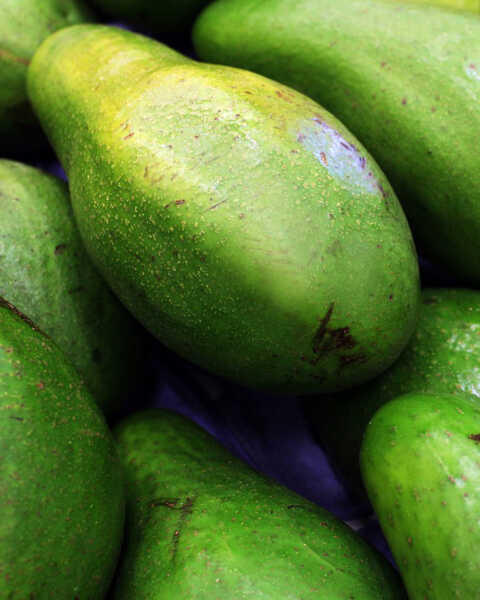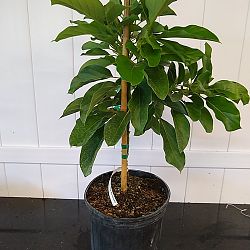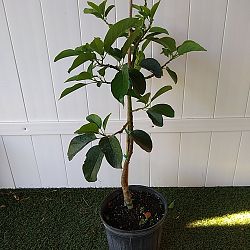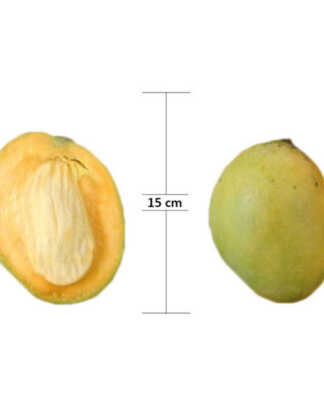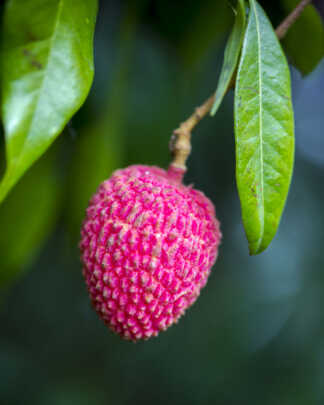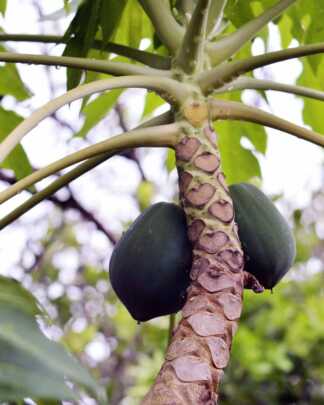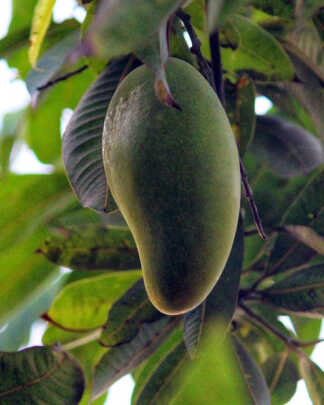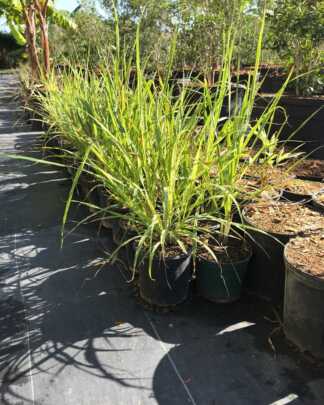Description
Persea americana, commonly known as the avocado tree, is a beloved member of the Lauraceae family, revered for its delicious and nutritious fruit. Originating from the hot, tropical regions of Central America, particularly Mexico, Guatemala, and the Caribbean, the avocado tree has found its way into households and gardens worldwide due to its adaptability and the popularity of its fruit.
Persea americana traces its roots back to Mesoamerica, where it has been cultivated for thousands of years by indigenous cultures such as the Aztecs and Mayans. Today, it is grown commercially in various tropical and subtropical regions worldwide, including California, Florida, Hawaii, Australia, and Israel.
Caring for your Avocado Tree
The Persea americana tree is an evergreen, medium to large-sized tree, capable of reaching heights of up to 20-30 feet when mature. Its dense, glossy foliage consists of elliptical leaves, ranging from light to dark green depending on the variety. The tree’s growth habit can vary from upright to spreading, with some cultivars exhibiting a more compact, bushy form ideal for container gardening.
Light
Avocado trees thrive in full sun, requiring a minimum of 6-8 hours of direct sunlight daily. Plant your tree in a location with ample sunlight exposure, such as a south-facing garden spot or a sunny patio.
Soil
Well-draining soil is crucial for the health of avocado trees. Use a rich, loamy soil mix with good drainage to prevent waterlogging, which can lead to root rot. A soil pH between 6 and 7 is optimal for avocado cultivation.
Water
Avocado trees have moderate water needs. Water deeply but infrequently, allowing the soil to dry out slightly between waterings. Overwatering can cause root rot, while underwatering can result in stress and poor fruit production. Adjust watering frequency based on environmental conditions and the tree’s growth stage.
Fertilization
Fertilize your avocado tree regularly with a balanced fertilizer formulated for fruit trees. Apply fertilizer during the growing season (spring and summer) according to package instructions. Avoid excessive nitrogen fertilization, as it can promote vegetative growth at the expense of fruit development.
Pruning
Pruning is essential for shaping the tree, promoting airflow, and controlling its size. Prune your avocado tree annually during the dormant season (winter) to remove dead or diseased branches, improve structure, and encourage fruiting. Avoid excessive pruning, as it can stress the tree and reduce fruit production.
Pollination
Most avocado varieties are self-pollinating to some extent, but cross-pollination by bees and other pollinators can increase fruit yield and quality. If growing multiple avocado trees, choose varieties that bloom at the same time to ensure successful pollination. Hand pollination may be necessary in some cases, especially for indoor or container-grown trees.
Pests and Diseases
Avocado trees are susceptible to various pests and diseases, including avocado lace bug, root rot (caused by waterlogging), anthracnose, and avocado thrips. Monitor your tree regularly for signs of pests or diseases, and take prompt action to mitigate infestations or infections. Cultural practices such as proper watering, pruning, and sanitation can help prevent many common issues.

